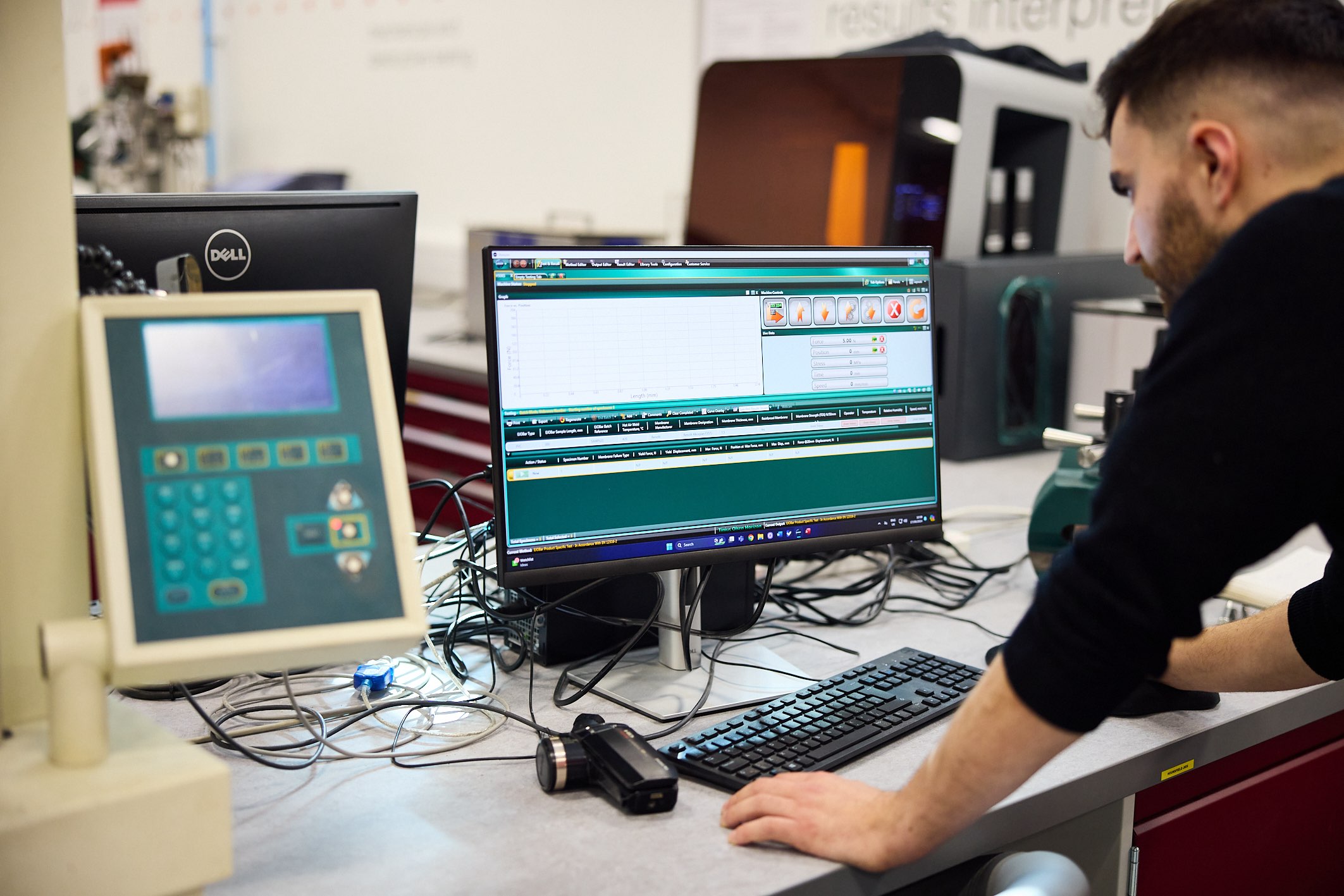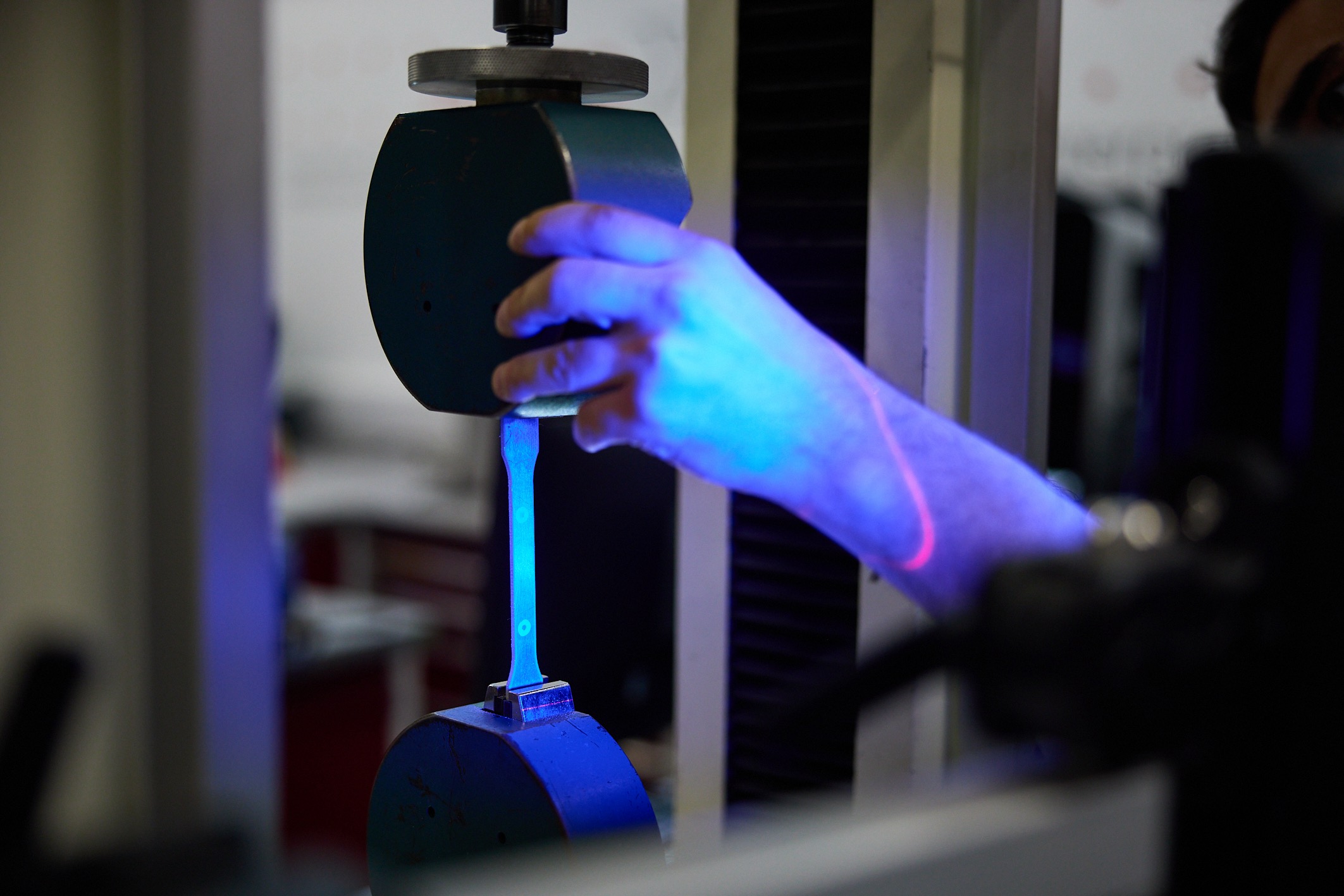
By Geoff Heath, marketing manager at EJOT UK
The design, testing and quality control processes adopted in the manufacture of EJOT’s building envelope fasteners and its mechanical anchors, which include its well-known LIEBIG range, are inherently linked to those that its industrial engineering fastener teams work to. The aim of perfection is in the company’s DNA.
As the UK construction industry works to deliver a safer, better performing and more sustainable built environment, the value of higher quality products and systems is increasingly being recognised, and experiences from other manufacturing sectors are helping to drive UK construction forward and accelerate change.
Where fasteners for the building envelope and mechanical anchors are concerned, the ability to utilise products made to superior quality standards that have long been expected in other sectors, is already here. The good news is, that does not mean switching to unfamiliar products or having to accommodate increased unit costs for the privilege.
Fastener manufacturer EJOT has been designing and manufacturing products for the construction sector for decades. But, importantly for specifiers and engineers pursuing higher quality and technical standards, it is not the only market the company serves – the cornerstone of EJOT’s business historically is automotive assembly, which means the company is well accustomed to complying with the standards applying to that industry.
Why does EJOT’s dual market presence matter? After all, a self-drilling fastener for a metal roofing sheet is very different to, say, a micro-screw needed for an electric vehicle battery assembly. That may be the case, but the major advantage of EJOT’s involvement in these distinctly different sectors stems from automotive’s exacting standards and how the whole company applies a consistent quality mindset.
Given the demanding performance required by EJOT’s industrial customers, particularly in the automotive industry, the fastening products and systems must offer the highest quality to virtually eliminate the risk of failure.
Many of the world’s premium car brands feature EJOT fastening solutions in one form or another, and in the UK that includes a multitude of OEMs that contribute to the automotive supply chain. These are manufacturers who cannot risk a fastening component undermining the quality of their product, given the impact it could have on customer satisfaction and long-term reputation, as well as the potential for a rise in costly warranty claims.
But more significantly, they must also ensure the highest levels of productivity are maintained in their factories too as unplanned interruptions to production lines are extremely damaging. This is why the automotive industry works to a target defect rate for most automotive components of 25 ppm (parts per million) or 0.0025%, which EJOT is able to comply with.
As a result, automotive has arguably the most rigorous quality standards of any industry. These may be vastly different to those which apply to construction, but that does not mean the approach to producing fasteners needs to be any different.
Fiona Morley, quality manager at EJOT UK says: “Despite being amongst the smallest components that go into a construction project, our fasteners are highly technical products designed to meet a specific design goal. Our customers in the industrial engineering sectors understand that more than most, and it is expected that EJOT products match or even exceed their expectations.
She continues: “From a quality perspective, our industrial customers demand virtually zero defects. We have to work to internationally recognised systems which are rigorous, exacting and fully traceable, so we take the view that there should be no difference in the quality standards we apply to the two sectors.
“The bar is set the bar very high and it is very rare for a fastening issue reported by a customer to be attributed to an EJOT quality issue,” Fiona adds. “In fact, less than 0.5% of the products we supply every year can be associated with any kind of quality concern – and, even then, that doesn’t necessarily mean the product is at fault in such cases. That’s a tiny proportion of the millions of components we supply annually for the UK construction and industrial industries.”
Valuable synergies from quality and technical collaboration
Fiona and the quality team work closely with EJOT UK’s technical team to ensure products are tested extensively in respect of their physical properties and performance in-situ. They are able to do this to industry-leading standards using the facilities and state of the art equipment available within the company’s Applitec Centre at its Yorkshire HQ.
Fiona states: “The Applitec Centre allows our quality and technical teams to work together very closely to achieve our quality assurance and quality control objectives. The way we work ensures we can achieve quality standards not normally seen in construction product manufacturing.
Working reactively is just one dimension. Much of our work is to proactively check products throughout their production, monitoring everything down to whether the bags used to package products have the correct coding on them and that boxes are correctly labelled, as well as checking the products themselves.”
The team utilises the testing equipment available in the Applitec Centre regularly, primarily for checking raw materials and goods coming into EJOT. This includes checking the coatings, hardness and dimensions.
Safety-critical components such as LIEBIG heavy duty anchors are subject to intricate and bespoke quality checks, as are products made from engineering grade nylon and manufactured by EJOT in the UK. These include go to products such as EJOT UK’s flagship Colorfast range, tube-washers used in flat roofing applications – which are batch tested, as well as with every new production run or change of material.
Fiona concludes: “Having effective quality control processes in place ensures that, should any issues arise, they can be pinpointed to a very specific place – and that means the whole manufacturing and supply process is very closely scrutinised. It is a positive dimension that is crucial to ensuring EJOT consistently delivers the best product quality and service, regardless of whether our customers are in the construction or industrial sectors.”
Click here to find out more about Fiona’s role when ensuring quality.

Becca is the latest member to join our team and is eager to get stuck into the world of fasteners. She brings an enthusiastic and fresh outlook on what we do editorially and will be leading our social media activity – including sourcing material, editing articles and posting online.






